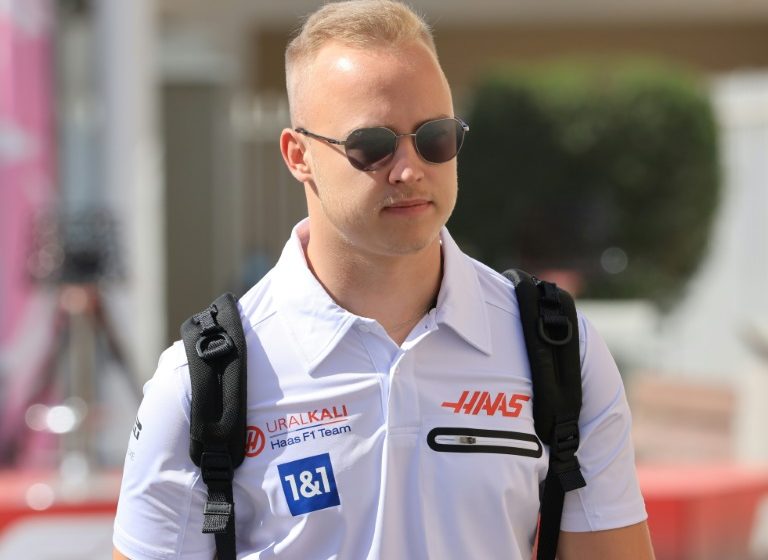EU court scraps sanctions on Russian ex-Formula 1 driver

Russian Formula One driver Nikita Mazepin, pictured in 2021
Brussels – A top EU court on Wednesday ruled to lift sanctions against Russian ex-Formula 1 driver Nikita Mazepin, whose career was brought to a halt by Moscow’s invasion of Ukraine.
The 25-year-old Mazepin had been racing in the world championship for the Haas team which was financed by the Uralkali company owned by his oligarch father Dmitry.
Mazepin and his father were added to the EU’s asset freeze and visa ban blacklist in March 2022 after the outbreak of the war for providing revenues for the Russian government.
Both Mazepin’s contract and Uralkali’s sponsorship of the team were cancelled.
The EU’s General Court had already ruled last year to suspend part of the sanctions imposed on Mazepin, clearing him to return to motor racing in Europe.
In its new ruling on Wednesday, the court ruled to annul the measures keeping Mazepin on the sanctions list.
It said that as Mazepin was no longer driving for a team sponsored by his father’s company the decision to maintain sanctions on him was based only on their family connection.
“The association between Mr Nikita Mazepin and his father is in no way established from an economic or capital perspective or by the existence of common interests linking them,” it said in a statement.
“The maintaining acts are therefore based, de facto, solely on the family connection, which is not sufficient.”
The ruling is a blow for the EU’s efforts to target the Russian elite over the war and the bloc will now have to change its justification for sanctioning Mazepin if it wants to keep him on the blacklist.
Last year Britain’s High Court refused to suspend UK sanctions against Mazepin.
In November the EU court refused to overturn sanctions against Mazepin’s father.
Since leaving Formula 1, Mazepin has raced in the Asian Le Mans Series and worked as an entrepreneur.
He has continued to post pictures of his lavish lifestyle on social media including from a tour of South America and skiing trips by helicopter.
Dozens of Russians oligarchs have been challenging the EU’s sanctions in court.
